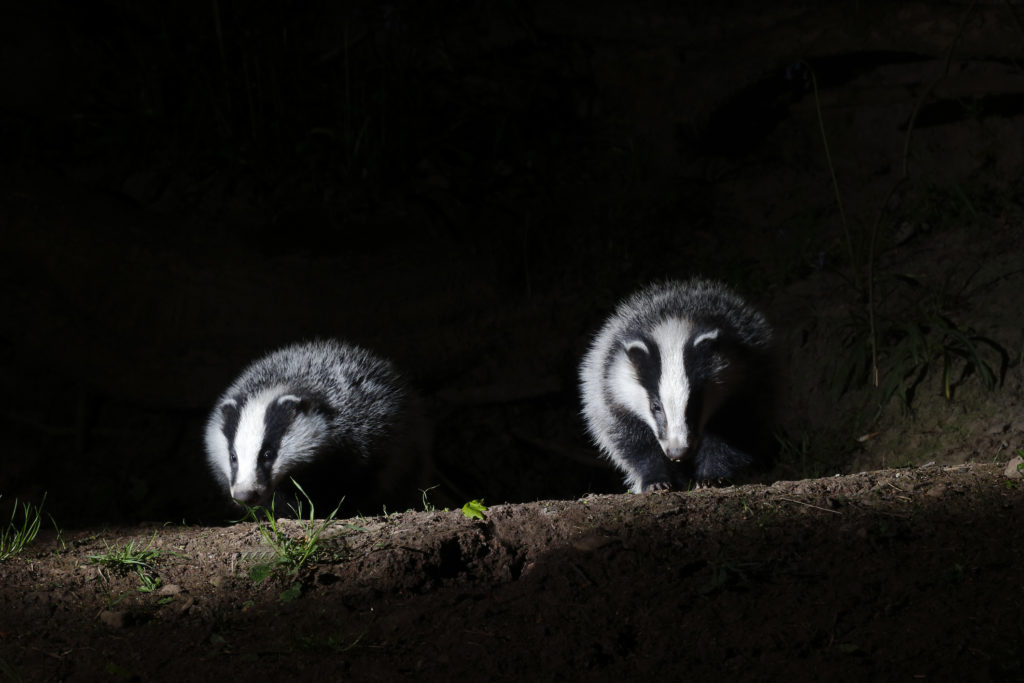In R (The National Farmers Union & Another) v Secretary of State for Environment, Food and Rural Affairs & Another, the court found that the Secretary of State (the ‘SofS’) had lawfully made the decision to issue a direction under the Natural Environment and Rural Communities Act 2006 (the “2006 Act”) precluding Natural England (‘NE’) from granting any licences to cull badgers in Derbyshire before 1 May 2020.
In England, badgers are a protected species and may only be culled, under licence, to prevent the spread of bovine tuberculosis (“bTB“). NE is the delegated licensing authority under the 2006 Act. In exercising that function it was required to have regard to statutory guidance issued by the SofS setting out the government’s approach to culling and the requirements that must be met for an applicant to be granted a culling licence.
With technical support from the first claimant, the second claimant applied for a licence covering parts of Derbyshire and Staffordshire (the “Lunar Area“). It was common ground that it met the requirements set out in the Guidance and NE was on course to grant a licence. However, the Lunar Area contained, and was adjacent to, sites at which vaccination of badgers for bTB was being carried out and government policy was to phase out culling and place more emphasis on vaccination schemes. The proposed cull was controversial, including with those who were carrying out the vaccination schemes, and with whom the government wished to build closer links.
On the basis of these and other considerations, the Secretary of State issued the direction – which NE was required to follow – in essence vetoing the grant of the licence.
The claimants challenged the decision to issue the direction on three grounds (all of which ultimately failed) –
- unlawful departure from policy in the form of the Guidance,
- frustration of a legitimate expectation, and
- Wednesbury unreasonableness (encompassing irrationality and an alleged failure to take into account relevant considerations (and vice versa)).
The first two grounds related to the fact that the second claimant met the requirements set out in the Guidance and had reasonably assumed that it would therefore be granted a licence.
The Court held that the extent of any policy reflected in the Guidance was that licences to cull would only be granted to those who could meet the stipulated requirements of an effective, safe and humane cull by satisfying the criteria set out in it. However, it did not follow that on fulfilment of those criteria, a person is entitled or guaranteed to obtain a licence as the Guidance itself did not mandate that the grant of a licence must follow in such circumstances.
NE needed only to have regard to the Guidance and, taken together with the way in which the Guidance was framed, retained a discretion to refuse a licence even to an applicant who met the stated requirements.
However, the more fundamental point was that the Guidance related to decisions made by NE, not those of the SofS. It could not bind the latter save to the extent that where the SofS herself made a licencing decision it could be said to articulate government policy as to how such decisions should be taken. In this case the SofS was not making a licensing decision, but exercising a power to direct NE not to grant licences in a particular area. Although it had the same result as the SofS refusing the licence, that result was achieved using a different legal route, and one that was harder to challenge.
In relation to legitimate expectation, the Court held that there was nothing in the Guidance which amounted to a clear and unequivocal promise that an applicant who applies for a licence in an accepted area and fulfils the Guidance requirements will be granted a licence, thus there was no legitimate expectation. Nor was there anything to suggest that the only relevant criteria that would be considered in deciding whether to grant a licence were those set out in the Guidance. Even though the claimants had good reason to believe they would get a licence, this was insufficient to found a legitimate expectation.
Indeed, even had such an expectation arisen, the Court held that this was probably an occasion on which the government could have lawfully departed from it, given that the decision taken was undoubtedly a political one involving the weighing of numerous policy factors.
Regarding the challenge of irrationality, it was for the SofS to decide what factors to take into account, and unless a factor was so obviously material or immaterial to the decision that no rational decision maker could have ignored it, the choice of relevant factors could not be questioned. Furthermore, the decision to issue the Direction itself had not been Wednesbury unreasonable.
Again highlighting the political grounds for the decision, it was considered that however compelling the case for permitting the licence issued appeared on other grounds, the SofS legitimately and responsibly concluded that no licences should be granted in Derbyshire for the year of 2019. Importantly, this did not preclude an application being made the following year when the position, and Guidance, may have changed.
Thus, under the decision-making hierarchy established by the 2006 Act, the SofS lawfully used her powers to issue the direction to NE as to the exercise of its delegated functions and NE was therefore bound to refuse the second claimant’s application.

